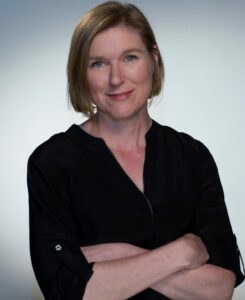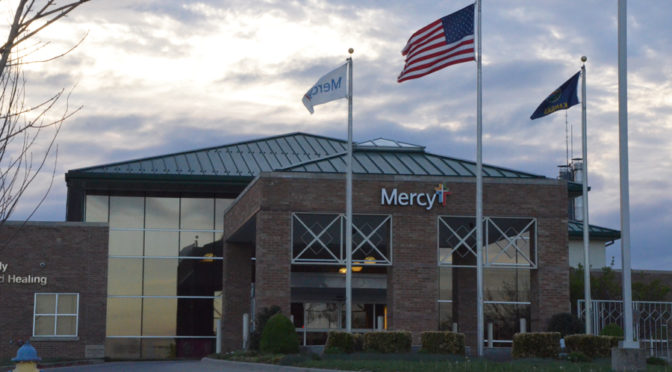
A new audio file will be available for Fort Scottians to download to a computer or mobile device about the demise of Mercy Hospital in 2018.
It will be a series, which can be subscribed to, entitled “Where It Hurts.” The first season is “No Mercy.”
The author of the series is Sarah Jane Tribble, a Kaiser Health News Senior Correspondent.
Tribble returned several times to Fort Scott following Mercy’s closure, to interview residents.
She spent more than a year recording the lives of people and how they changed.
“Their stories are full of grit and hope. Along the way, Tribble finds that the notion that every community needs a hospital deserves questioning,” according to the press release.
“The reporting for this project began just weeks before the hospital closed in December 2018 and ended with a final trip in December 2019,” Tribble said. “Throughout, I was reminded of the resilience and strength of people in southeastern Kansas.”
Each episode spends time with people in town, Tribble said in an email interview. “In one, I take the listener to a (Fort Scott) Chamber Coffee, in another, we travel to the cancer treatment center. I truly believe every person in this podcast is worth meeting and spending time with.”
Tribble asked “uncomfortable questions of (Fort Scott) town leaders and the Catholic nuns who once ran Mercy to find out why the hospital, like so many others in rural America, fell upon hard times and ultimately shut down,” according to the release.
Tribble in the first segment on Sept. 29, interviews Pat and Ralph Wheeler, Dave Martin, Roxine Poznich, Krista Postai, and Reta Baker.
Mercy’s Importance To Fort Scott
The loss to the community was not just health care but Mercy Hospital was one of its largest employers and had some of its best-paying jobs according to a Kaiser Family Foundation press release, New Podcast “No Mercy” Features Fort Scott.
“Mercy Hospital served as a mainstay of the town for 132 years and was a constant presence until faltering finances forced its doors to close in December 2018,” according to the press release. “The town felt abandoned.”
To subscribe to the podcast, click below: http://whereithurts.show
The new podcast is a collaboration between Kaiser Health News and St. Louis Public Radio.
When KHN Editor-in-Chief Elisabeth Rosenthal read Tribble’s stories of Fort Scott, she knew it should be a podcast, according to the press release .
St. Louis Public Radio General Manager Tim Eby said in the press release “The powerful stories from ‘Where It Hurts’ will help listeners, no matter where they are, understand the health care challenges facing our nation. These are stories that bring context and humanity and need to be heard by audiences.”
Series Begins On September 29 With Weekly Episodes
The series employing a narrative storytelling approach, debuts Sept. 29, with episodes to be released weekly through Nov. 10.
They will be available on major podcast platforms, including Apple Podcasts, Google Podcasts, Spotify, Stitcher, and NPR One.
About the author, Sarah Jane Tribble
Tribble was born and grew up in Parsons, Kansas. Her parents still live on the 10-acre farm she was raised on.

“My love of journalism began when I joined the high school newspaper staff,” she said. ” I went away to college, took a job at the Wichita Eagle, and then followed a journalism career path that took me from coast-to-coast.”
She first heard of Fort Scott Mercy Hospital closing from her mom in one of their frequent conversations, Tribble said.
Doing the background for the story, Tribble was alarmed by the health statistics.
“As someone who grew up in the region, I was initially surprised and alarmed to learn of some of the poor health statistics in the area,” Tribble said in the email interview. “The data shows there are higher rates of diabetes and obesity as well as higher rates of smoking and childhood poverty than other areas of the state. It all adds up to people dying younger.”
